
Majestic Blue Ridge Mountains: North Carolina's Scenic Wonderland
The Blue Ridge Mountains in North Carolina are a must-visit for any nature lover. These mountains are part of the larger Appalachian Mountains range, and they stretch across the western part of the state. The Blue Ridge Parkway, often called 'America's Favorite Drive,' runs through the heart of the mountains, offering stunning vistas and a variety of recreational activities. Visitors can enjoy hiking, biking, and camping in the numerous trails and parks that dot the region. The Great Smoky Mountains National Park, located within the Blue Ridge, is one of the most visited national parks in the United States. With its diverse flora and fauna, it is a paradise for wildlife enthusiasts and photographers. Don't miss the charming mountain towns like Asheville, known for its vibrant arts scene, historic architecture, and delicious local cuisine. The area is also famous for its music, with bluegrass and folk tunes filling the air at local festivals and events. Whether you're an adventure seeker or someone looking to relax in a tranquil setting, the Blue Ridge Mountains offer something for everyone.
Local tips in Blue Ridge Mountains
- Visit during the fall to witness the stunning autumn foliage.
- Pack layers, as temperatures can vary widely in the mountains.
- Stop at the Blue Ridge Parkway Visitor Centers for maps and information.
- Explore Asheville’s local breweries; it’s a hotspot for craft beer.
- Book accommodations early, especially during peak tourist seasons.
Majestic Blue Ridge Mountains: North Carolina's Scenic Wonderland
The Blue Ridge Mountains in North Carolina are a must-visit for any nature lover. These mountains are part of the larger Appalachian Mountains range, and they stretch across the western part of the state. The Blue Ridge Parkway, often called 'America's Favorite Drive,' runs through the heart of the mountains, offering stunning vistas and a variety of recreational activities. Visitors can enjoy hiking, biking, and camping in the numerous trails and parks that dot the region. The Great Smoky Mountains National Park, located within the Blue Ridge, is one of the most visited national parks in the United States. With its diverse flora and fauna, it is a paradise for wildlife enthusiasts and photographers. Don't miss the charming mountain towns like Asheville, known for its vibrant arts scene, historic architecture, and delicious local cuisine. The area is also famous for its music, with bluegrass and folk tunes filling the air at local festivals and events. Whether you're an adventure seeker or someone looking to relax in a tranquil setting, the Blue Ridge Mountains offer something for everyone.
When is the best time to go to Blue Ridge Mountains?
Unmissable attractions to see
Chimney Rock at Chimney Rock State Park
Discover Chimney Rock at Chimney Rock State Park, where stunning vistas, thrilling hikes, and rich biodiversity converge in North Carolina's picturesque Blue Ridge Mountains.
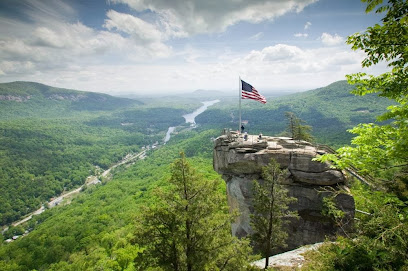
Grandfather Mountain
Explore the breathtaking landscapes and diverse wildlife of Grandfather Mountain, North Carolina's iconic nature preserve and tourist attraction.
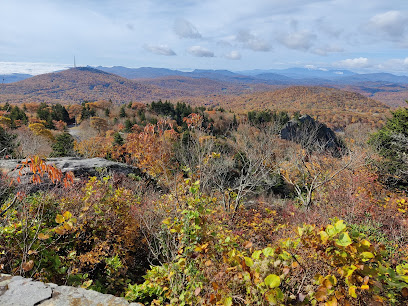
Tweetsie Railroad
Discover the magic of Tweetsie Railroad: a family-friendly theme park in the Blue Ridge Mountains with thrilling rides, train adventures, and unforgettable entertainment.
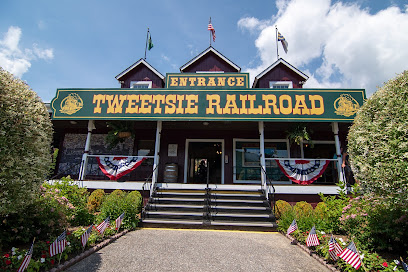
Linville Caverns, Inc
Experience the breathtaking beauty of Linville Caverns in North Carolina, a captivating underground attraction filled with stunning formations and rich history.
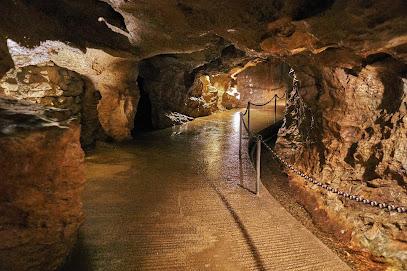
Western North Carolina Nature Center
Discover the beauty of the Appalachian region at the Western North Carolina Nature Center – a blend of park, zoo, and educational experiences.
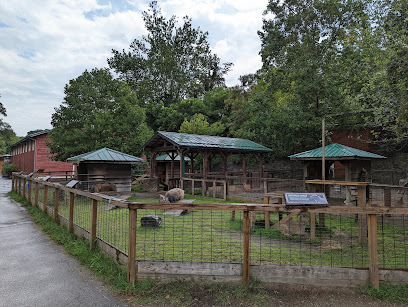
Mile High Swinging Bridge
Discover the breathtaking Mile High Swinging Bridge, a stunning suspension bridge offering panoramic views of the Blue Ridge Mountains and surrounding nature.
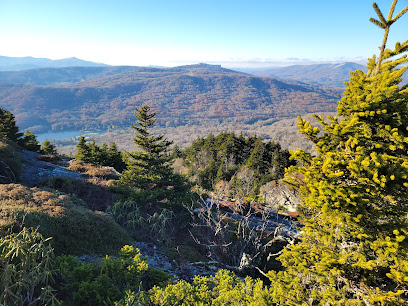
Lake James State Park
Explore Lake James State Park in North Carolina, a haven for nature lovers with stunning landscapes, outdoor activities, and serene lakeside experiences.
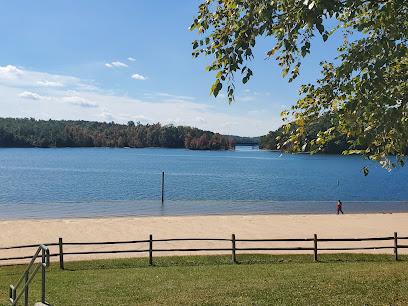
Blue Ridge Parkway Visitor Center
Explore the Blue Ridge Parkway Visitor Center for stunning views, educational exhibits, and the best insights into the beautiful Blue Ridge Mountains.
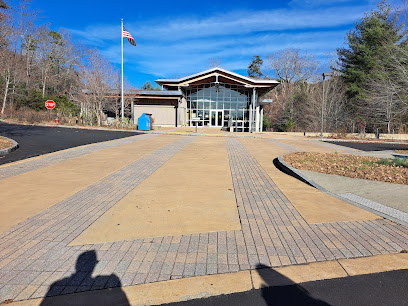
Mystery Hill
Discover the perplexing phenomena and rich history at Mystery Hill, a captivating attraction in North Carolina's scenic mountains.

Julian Price Memorial Park
Explore the beauty of Julian Price Memorial Park, a serene destination along the Blue Ridge Parkway, perfect for outdoor activities and scenic views.
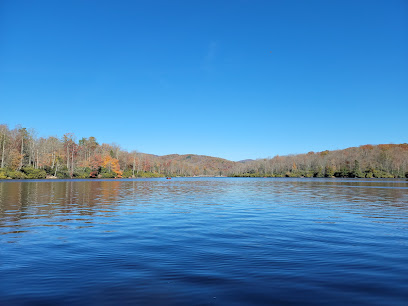
Carrier Park
Explore Carrier Park in Asheville, a perfect blend of nature and recreation in North Carolina's beautiful landscapes. Enjoy trails, sports, and serene views.

French Broad River Park
Explore the natural beauty and tranquility of French Broad River Park in Asheville, NC, a perfect spot for relaxation and outdoor adventures.
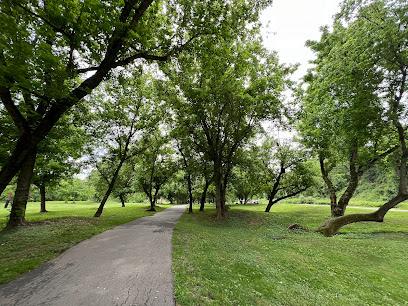
Rough Ridge Lookout - Grandfather Mountain, NC.
Experience the stunning panoramic views and serene beauty of Rough Ridge Lookout in North Carolina's Blue Ridge Mountains.
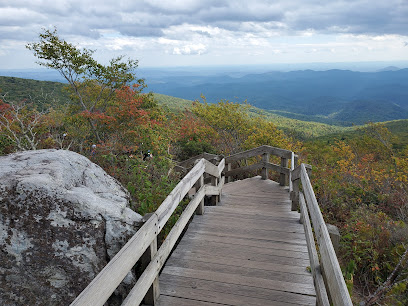
Craggy Pinnacle Hike
Explore the stunning Craggy Pinnacle Hike in North Carolina for breathtaking views and vibrant wildflowers in the heart of the Blue Ridge Mountains.
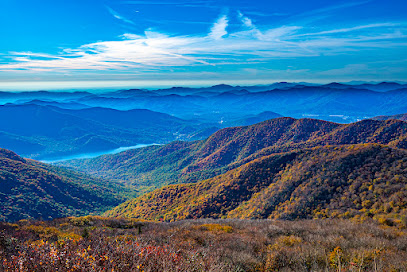
Tanbark Ridge Overlook
Discover the stunning natural beauty of Tanbark Ridge Overlook, a scenic spot on the Blue Ridge Parkway offering breathtaking mountain views.
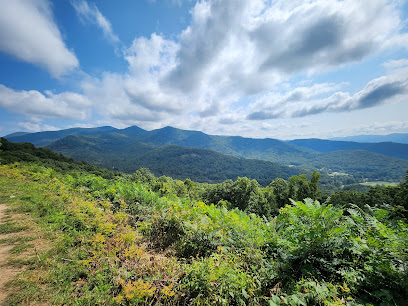
Essential places to dine
Southern Charm Restaurant
Experience authentic Southern cuisine in Blue Ridge at Southern Charm Restaurant – where every meal tells a story.
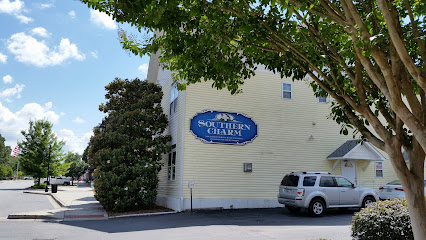
Pisgah Inn
Discover Pisgah Inn: A Scenic Retreat with Stunning Views and Delicious Dining in North Carolina's Blue Ridge Mountains.

Black Sheep Restaurant
Experience delicious American cuisine at Black Sheep Restaurant in Blue Ridge - where every meal is a celebration of local flavors.
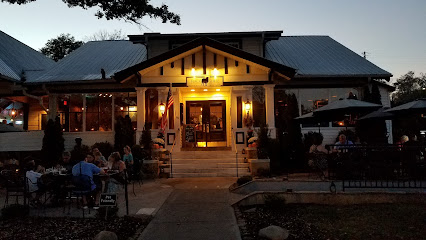
Blue Mountain Pizza
Experience the best handcrafted pizzas in Weaverville at Blue Mountain Pizza - where flavor meets community spirit.
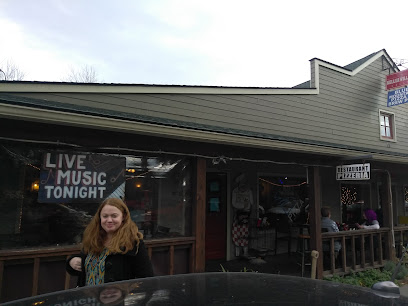
Harvest On Main
Experience authentic Southern barbecue at Harvest On Main in Blue Ridge - where fresh ingredients meet family-friendly dining.
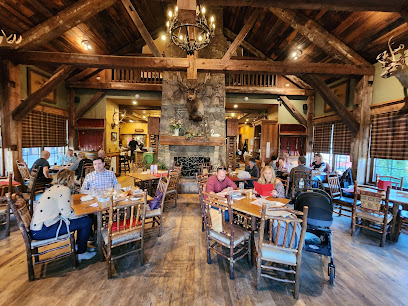
Chester Brunnenmeyer's Bar & Grill
Experience delicious food and vibrant drinks at Chester Brunnenmeyer's Bar & Grill in beautiful Blue Ridge, GA.
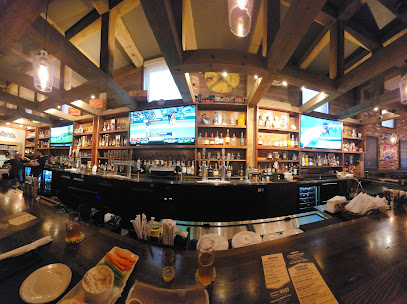
Louise's Rock House Restaurant
Discover delicious American and seafood dishes at Louise's Rock House Restaurant in Newland, NC - a must-visit for every food-loving traveler.
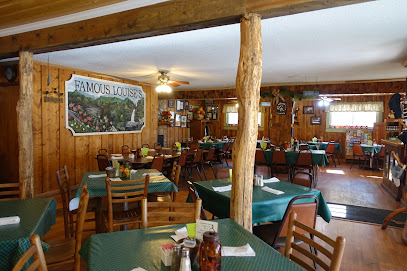
Bistro Roca
Discover Bistro Roca in Blowing Rock - where local flavors meet mountain views for an unforgettable dining experience.
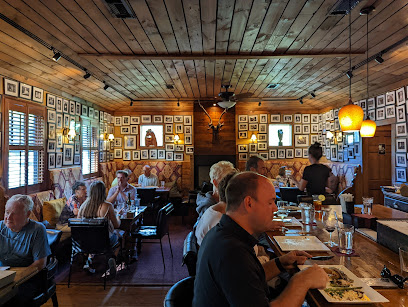
Rum Cake Lady Cuban Food Downtown Blue Ridge
Discover authentic Cuban cuisine at Rum Cake Lady in Blue Ridge - A culinary delight featuring sandwiches, pastries, and traditional flavors.
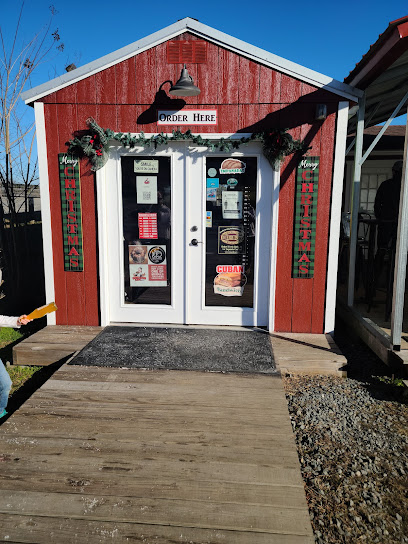
Blue Ridge Biscuit Company
Experience authentic Southern comfort food at Blue Ridge Biscuit Company - where every biscuit tells a story.
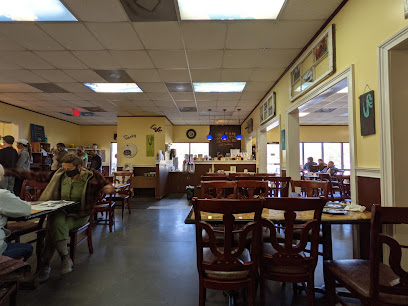
Mabry Mill Restaurant & Gift Shop
Experience authentic Southern cuisine and local crafts at Mabry Mill Restaurant & Gift Shop in Virginia's breathtaking Blue Ridge Mountains.
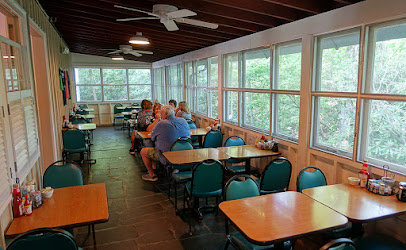
Coach House Seafood & Steak
Experience the best seafood and steak in Black Mountain at Coach House Seafood & Steak - where freshness meets flavor!
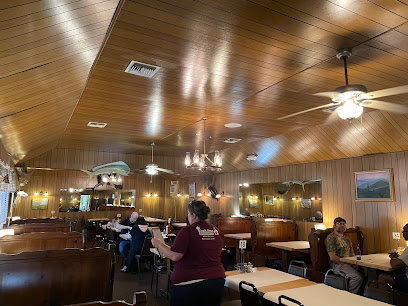
Chalet Restaurant
Experience authentic American cuisine at Chalet Restaurant in Little Switzerland—where mountain views meet delicious meals.
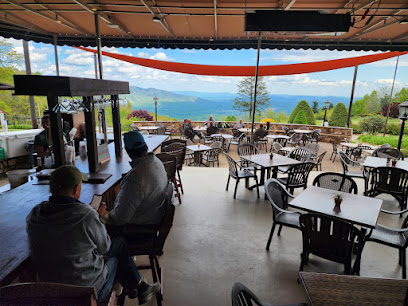
Pete's Place
Experience authentic American cuisine at Pete's Place in Blue Ridge, GA - where every meal feels like home.
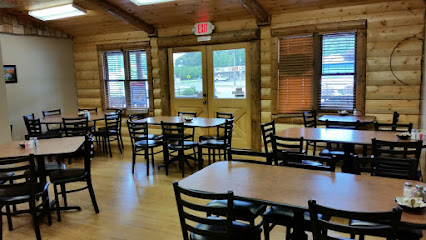
Gamekeeper Restaurant
Experience fine dining at its best in Boone, NC with seasonal dishes and stunning mountain views at Gamekeeper Restaurant.
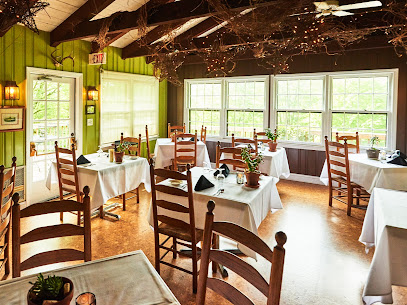
Markets, malls and hidden boutiques
Original Mast General Store
Experience the nostalgia and charm of the Original Mast General Store, your one-stop-shop for outdoor gear, clothing, and sweet treats in Sugar Grove, NC.
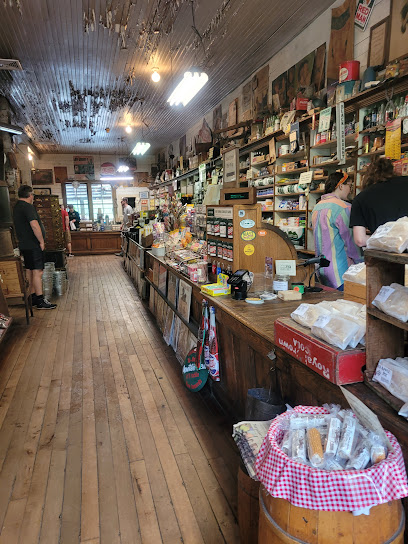
Shoppes on the Parkway
Experience the perfect blend of shopping and natural beauty at Shoppes on the Parkway in Blowing Rock, North Carolina.
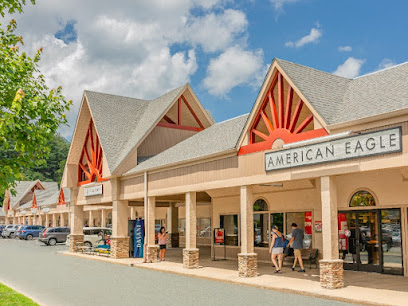
Blue Ridge Mall
Experience the unique blend of shopping and dining at Blue Ridge Mall, your premier shopping destination in Hendersonville, North Carolina.

Blue Ridge Biscuit Company
Experience the best Southern biscuits in Black Mountain, NC, at Blue Ridge Biscuit Company – where taste meets tradition in a cozy setting.
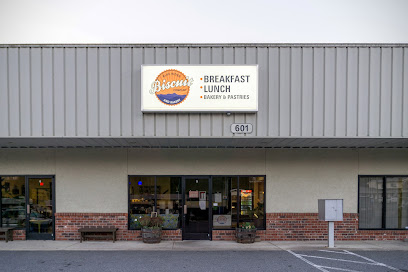
Huck's General Store
Explore Huck's General Store in Blue Ridge, Georgia, for unique gifts, local delicacies, and a taste of Southern hospitality in a charming setting.
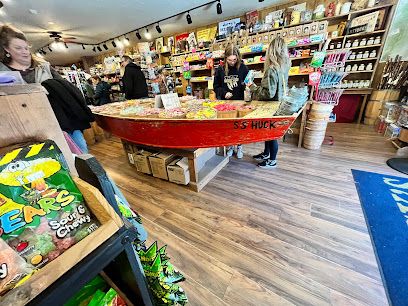
Jelly Belly's Mountain Gift
Experience the sweetest adventure at Jelly Belly's Mountain Gift, where delightful candies and creamy ice cream await in Maggie Valley, North Carolina.
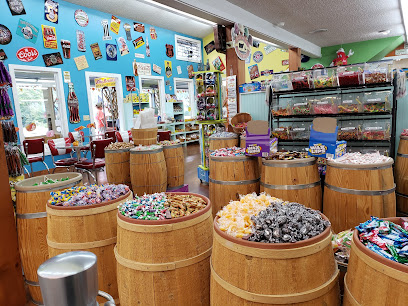
Rockhound Ridge Gem Mine
Unearth unique gemstones and enjoy a family-friendly adventure at Rockhound Ridge Gem Mine in Sylva, North Carolina.
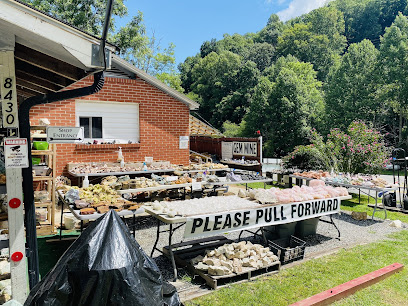
Northwest Trading Post
Discover the charm of local crafts and unique souvenirs at the Northwest Trading Post in beautiful Glendale Springs, North Carolina.
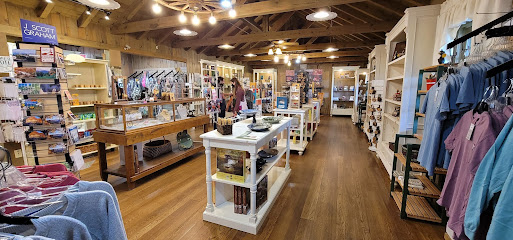
Great Smoky Mountains Railroad Retail Store & Train Museum
Discover the charm of the Great Smoky Mountains Railroad Retail Store & Train Museum, where history, shopping, and scenic train rides converge.
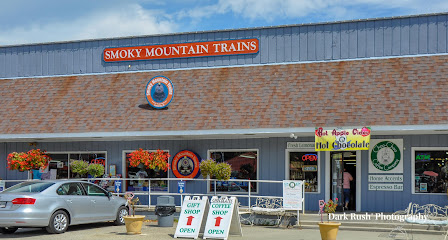
Blue Ridge Hiking Company
Discover the wonders of the Blue Ridge Mountains with guided hikes and expert gear at Blue Ridge Hiking Company in Asheville, NC.
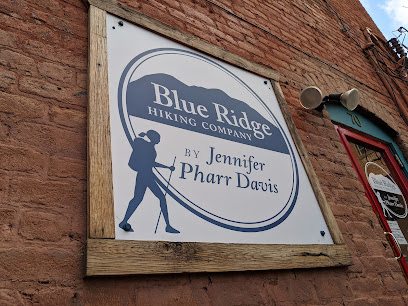
Saunooke's Mill & Shop
Discover unique local crafts and souvenirs at Saunooke's Mill & Shop in Cherokee, NC - a charming gift shop celebrating local artisans.
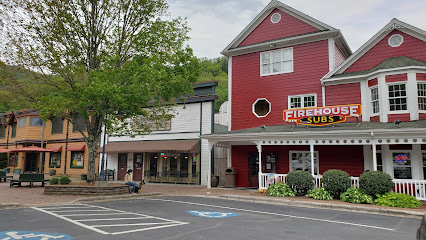
Tanglewood Village and Shops
Discover Tanglewood Village and Shops in Maggie Valley, NC, where antiques meet artistry in a charming setting filled with history.
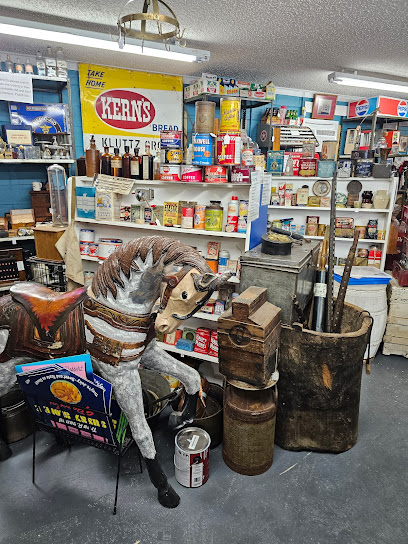
Blue Ridge Mountain Mall
Explore the vibrant gift shop in Blue Ridge, Georgia, featuring unique local crafts and souvenirs that capture the spirit of the mountains.
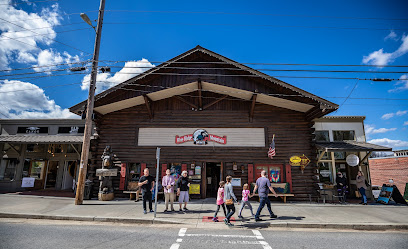
Blue Ridge Cotton Company
Explore the enchanting Blue Ridge Cotton Company, where unique clothing, home goods, and charming gifts await your discovery in picturesque Blue Ridge, Georgia.
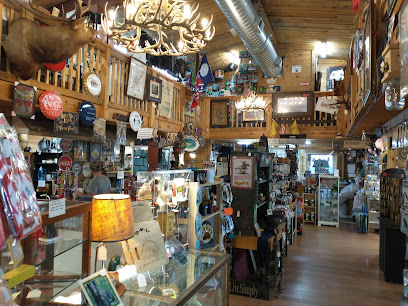
Cabbage Rose
Discover unique gifts and local crafts at Cabbage Rose, a charming gift shop in Maggie Valley, perfect for all your souvenir needs.
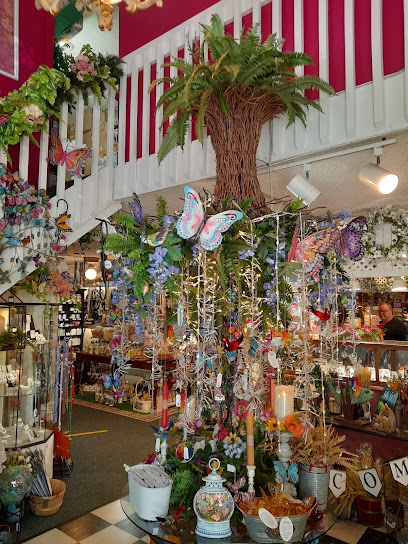
Essential bars & hidden hideouts
Off The Wagon Dueling Piano Bar Asheville
Discover the lively ambiance and unforgettable entertainment at Off The Wagon Dueling Piano Bar in Asheville, where music and fun collide!

Lake House Restaurant Bar & Grill
Experience exquisite dining at Lake House Restaurant Bar & Grill, featuring breathtaking views and a menu that celebrates the flavors of Lake Lure.
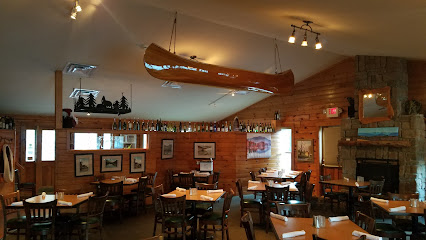
Trailhead Restaurant & Bar
Discover the vibrant American cuisine and cozy atmosphere of Trailhead Restaurant & Bar in the heart of Black Mountain, perfect for unwinding after a day of adventure.
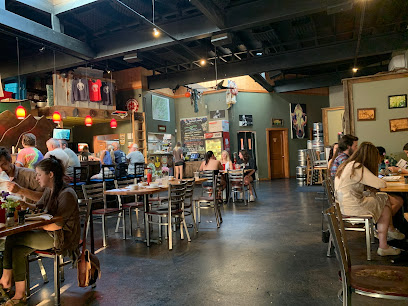
Black Sheep Restaurant
Experience the best of American cuisine in Blue Ridge, GA at Black Sheep Restaurant, where fresh ingredients and a vibrant atmosphere await.
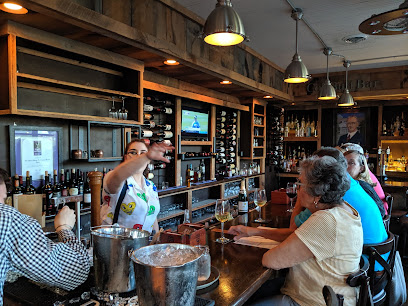
Fightingtown Tavern
Experience the best of Blue Ridge dining at Fightingtown Tavern, where flavor meets hospitality in a cozy atmosphere.
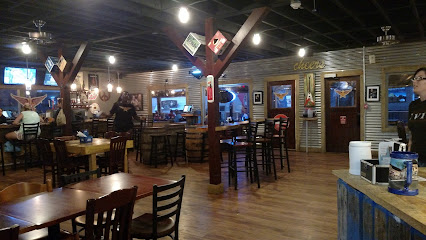
Riverwatch Bar & Grill
Experience the flavors of the Smoky Mountains at Riverwatch Bar & Grill, where great food meets breathtaking views.
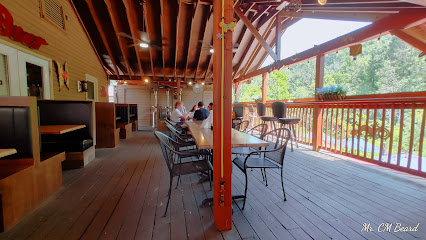
Chester Brunnenmeyer's Bar & Grill
Experience the best of southern hospitality at Chester Brunnenmeyer's Bar & Grill, Blue Ridge's favorite spot for delicious food and drinks.
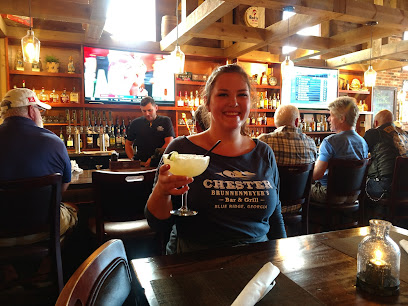
The Social
Experience the best of Asheville at The Social, a vibrant grill and live music venue offering delicious food and an unforgettable atmosphere.

The Odd
Experience the vibrant nightlife and live music at The Odd in Asheville, where delicious food and great drinks create unforgettable memories.
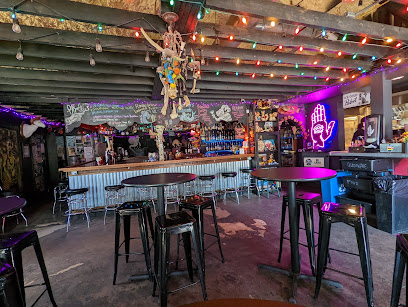
The Crow & Quill
Experience the vibrant nightlife of Asheville at The Crow & Quill, where unique cocktails and live music create unforgettable evenings.

The Blue Coyote
Experience Southern hospitality at The Blue Coyote, your go-to American bar and grill in Blue Ridge, Georgia, featuring live music and sports entertainment.
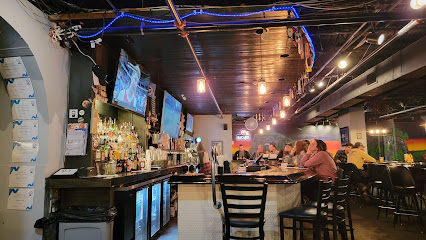
Storm Rhum Bar
Discover the vibrant culinary scene at Storm Rhum Bar, a New American bistro and bar offering innovative dishes and signature cocktails in Asheville.
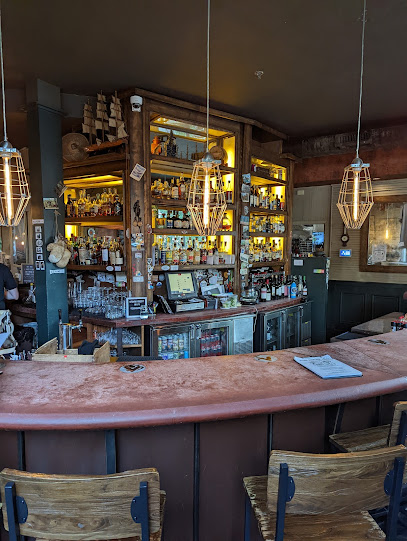
The Montford Rooftop Bar
Experience breathtaking views and exquisite cocktails at The Montford Rooftop Bar in Asheville, where culinary delights meet an unforgettable skyline.
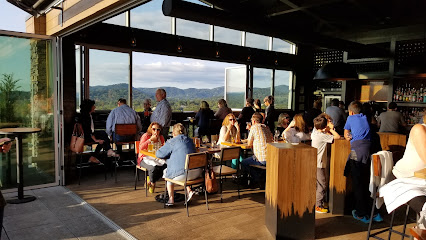
Capella on 9
Discover the vibrant flavors of Asheville at Capella on 9, where tapas and craft cocktails meet a lively atmosphere.
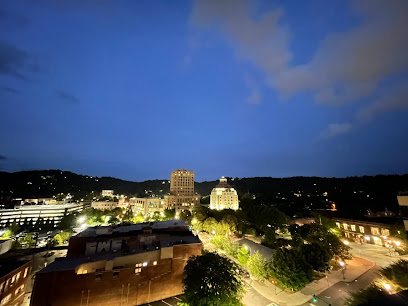
Antidote at Chemist Spirits
Experience the art of mixology at Antidote at Chemist Spirits, a premier cocktail bar in Asheville's vibrant South Slope Brewing District.
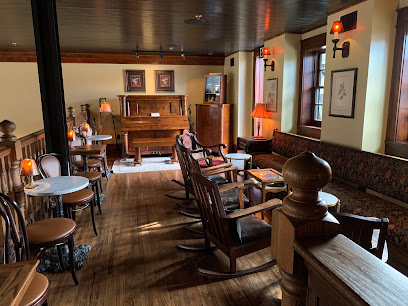
Local Phrases about Blue Ridge Mountains
-
- HelloHowdy
[hah-dee] - GoodbyeSee ya
[see yuh] - YesYup
[yuhp] - NoNaw
[naw] - Please/You're welcomePlease/Thank ya kindly
[pleez/thank yuh kahynd-lee] - Thank youMuch obliged
[muhch uh-blahy-jed] - Excuse me/SorryBeg your pardon
[beg yur pahrd-n] - How are you?How y'all doin'?
[haw yawl doo-in] - Fine. And you?Just fine. How 'bout y'all?
[juhst fahyn. how bowt yawl] - Do you speak English?Ya speak English?
[yuh speak ing-glish] - I don't understandI ain't catchin' on
[I aint kach-in on]
- HelloHowdy
-
- I'd like to see the menu, pleaseI reckon I'll take a gander at the menu
[I rehk-uhn ayl tayk uh gan-dur at the menu] - I don't eat meatI don't fancy no meat
[I dont fan-see noh meet] - Cheers!Here's to ya!
[heers to yuh] - I would like to pay, pleaseI reckon it's time to settle up
[I rehk-uhn its tahym tuh set-ul up]
- I'd like to see the menu, pleaseI reckon I'll take a gander at the menu
-
- Help!Git some help!
[git sum help] - Go away!Skedaddle!
[sked-add-uhl] - Call the Police!Get the Law on 'em!
[get the law on em] - Call a doctor!Fetch the doc!
[fetch the dahk] - I'm lostI'm turned around
[I'm turnd a-round] - I'm illI'm feelin' poorly
[I'm feel-in poor-lee]
- Help!Git some help!
-
- I'd like to buy...I reckon I'll pick up...
[I rehk-uhn ayl pik up...] - I'm just lookingI'm just browsin'
[I'm just brows-in] - How much is it?What's the damage?
[whats the dam-ij] - That's too expensiveThat's a mite pricey
[thats a myt prahy-see] - Can you lower the price?Can ya do any better on the cost?
[Can yuh do any bet-er on the kost]
- I'd like to buy...I reckon I'll pick up...
-
- What time is it?What's the hour?
[whats the ow-er] - It's one o'clockIt's one by the clock
[its wun by the klok] - Half past (10)Half way to eleven
[half way tuh el-ehv-en] - MorningMornin'
[morn-in] - AfternoonAfternoon
[after-noon] - EveningEvenin'
[even-in] - YesterdayYestiddy
[yest-id-dee] - TodayToday
[toh-day] - TomorrowTomorry
[tom-or-ree] - 1One
[wun] - 2Two
[too] - 3Three
[three] - 4Four
[for] - 5Five
[fahyv] - 6Six
[siks] - 7Seven
[sev-uhn] - 8Eight
[ayt] - 9Nine
[nahyn] - 10Ten
[ten]
- What time is it?What's the hour?
-
- Where's a/the...?Where's the...
[wheres the...] - What's the address?What's the holler?
[whats the hah-ler] - Can you show me (on the map)?Can ya point it out (on the map)?
[Can yuh point it out (on the map)] - When's the next (bus)?When's the next (bus) comin' through?
[whens the next (bus) com-in thru] - A ticket (to ....)A pass (to ....)
[A pass (to ....)]
- Where's a/the...?Where's the...
History of Blue Ridge Mountains
-
The Blue Ridge Mountains in North Carolina have been home to various Indigenous tribes for thousands of years, notably the Cherokee. These early inhabitants left behind a rich cultural heritage, including trails, pottery, and oral traditions that provide insight into their way of life. The Cherokee, in particular, had a highly organized society with established villages, government systems, and trade routes extending across the region.
-
European settlers began to explore and settle in the Blue Ridge Mountains in the mid-18th century. This period saw the establishment of small farming communities and the development of trade with local Indigenous tribes. The European presence brought significant changes to the region, including new technologies, crops, and livestock, as well as conflicts and treaties with the Cherokee people.
-
During the American Revolutionary War, the Blue Ridge Mountains served as a strategic location for both Patriot and Loyalist forces. The region's rough terrain provided natural defenses and hiding spots for militias and guerilla fighters. Key battles and skirmishes took place in and around the mountains, contributing to the overall war effort and the eventual American victory.
-
One of the most tragic chapters in the history of the Blue Ridge Mountains is the Trail of Tears, which began in 1838. Under the Indian Removal Act, the Cherokee people were forcibly removed from their ancestral lands in the Blue Ridge Mountains and other areas, leading to a devastating journey to present-day Oklahoma. Thousands of Cherokee perished along the way due to harsh conditions, disease, and starvation.
-
The Blue Ridge Mountains were a significant theater of activity during the American Civil War. The rugged terrain provided a refuge for Confederate soldiers and guerrilla fighters, as well as Union sympathizers. Following the war, the region faced economic challenges and reconstruction efforts, but it also saw the rise of new industries such as timber and mining.
-
In the early 20th century, the idea of creating a scenic roadway through the Blue Ridge Mountains was conceived. The Blue Ridge Parkway, designed to connect the Great Smoky Mountains National Park in North Carolina to Shenandoah National Park in Virginia, was officially established in 1936. This project not only provided jobs during the Great Depression but also preserved the natural beauty and cultural heritage of the region for future generations.
-
In recent decades, there has been a renewed interest in the cultural heritage of the Blue Ridge Mountains. Efforts to preserve traditional Appalachian music, crafts, and storytelling have gained momentum, with festivals, museums, and cultural centers dedicated to celebrating the unique history of the region. This cultural revival has helped to maintain the identity and traditions of the Blue Ridge Mountains while attracting tourists from around the world.
Blue Ridge Mountains Essentials
-
The Blue Ridge Mountains in North Carolina are accessible from several major cities. The closest airports are Asheville Regional Airport (AVL) and Charlotte Douglas International Airport (CLT). From Asheville, you can reach the mountains in about an hour by car. From Charlotte, the drive is approximately two hours. For those preferring public transportation, Greyhound and Megabus offer bus services to Asheville, from where you can rent a car or take a local bus to your destination in the mountains.
-
Once in the Blue Ridge Mountains, having a car is highly recommended for maximum flexibility and convenience. While there are some public transportation options, such as local buses and shuttles in towns like Asheville, a car allows you to explore more remote areas and scenic byways like the Blue Ridge Parkway. Bicycling is also popular for those who enjoy a more active mode of transportation. Ride-sharing services like Uber and Lyft are available in larger towns but may be limited in more remote areas.
-
The official currency in the United States is the US Dollar (USD). Credit and debit cards are widely accepted throughout the Blue Ridge Mountains, including in restaurants, hotels, and shops. ATMs are readily available in towns and cities. However, it is advisable to carry some cash, especially when venturing into more rural or remote areas where card payments may not be accepted.
-
The Blue Ridge Mountains are generally safe for tourists. However, as with any travel destination, it's important to take standard precautions. Avoid walking alone at night in unfamiliar areas and keep an eye on your belongings in crowded places. Crime rates are relatively low, but areas in larger towns like Asheville can have higher instances of petty theft. Always lock your car and be cautious when hiking in remote areas. Inform someone of your plans and expected return time.
-
In case of emergency, dial 911 for immediate assistance from police, fire, or medical services. Hospitals and urgent care centers are available in larger towns like Asheville. It's recommended to have travel insurance that covers medical emergencies. For minor health issues, pharmacies in towns can provide over-the-counter medications. When hiking or exploring remote areas, always carry a first aid kit and know the location of the nearest medical facility.
-
Fashion: Do wear comfortable, weather-appropriate clothing and sturdy footwear, especially when hiking. Don't wear overly revealing clothing. Religion: Do respect local customs and traditions. Some areas may have historical churches; dress modestly when visiting. Public Transport: Do be polite and respectful to drivers and fellow passengers. Don't eat or drink on local buses. Greetings: Do greet people with a friendly 'hello' or 'good morning.' Don't be overly familiar with strangers. Eating & Drinking: Do try local cuisine and tip your servers (15-20% is customary). Don't be loud or disruptive in restaurants.
-
To experience the Blue Ridge Mountains like a local, consider visiting during off-peak seasons to avoid crowds. Engage with local communities by attending farmers' markets and local festivals. Take a scenic drive along the Blue Ridge Parkway for breathtaking views. Try local specialties like North Carolina BBQ and craft beers. Visit local art galleries and craft shops to support regional artisans. Hiking enthusiasts should explore lesser-known trails for a quieter experience. Don't miss the chance to catch a live music performance, as the area is known for its rich musical heritage.
Nearby Cities to Blue Ridge Mountains
-
Things To Do in Johnson City
-
Things To Do in Boone
-
Things To Do in Hickory
-
Things To Do in Greer
-
Things To Do in Spartanburg
-
Things To Do in Greenville
-
Things To Do in Mauldin
-
Things To Do in Gatlinburg
-
Things To Do in Pigeon Forge
-
Things To Do in Mooresville
-
Things To Do in Charlotte
-
Things To Do in Anderson
-
Things To Do in Rock Hill
-
Things To Do in Fort Mill
-
Things To Do in Knoxville












